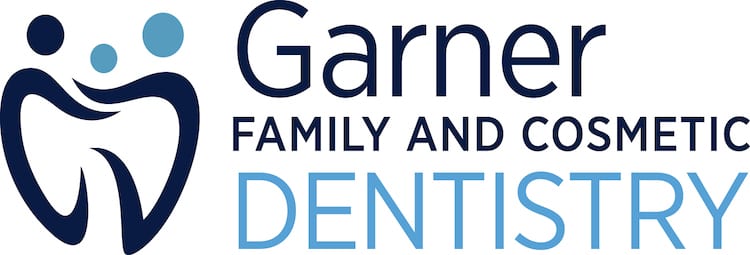Periodontitis, or gum disease, is a bacterial infection of the gums. It spreads quickly from the gums to the supporting bones and can cause tooth loss if gone untreated. Dr. Wingate screens for the signs of gum disease during routine dental visits. If there is a reason to suspect your gums have been affected, our team offers periodontal therapy as a restorative dentistry solution to help patients keep their gums healthy and prevent tooth loss.
Gum disease affects patients of all ages. Its early stage, gingivitis, is usually reversible with thorough removal of all plaque buildup on the affected teeth. At Garner Family and Cosmetic Dentistry, we attempt to combat the onset of gum disease by encouraging regular cleanings and dental check-ups.
Because pain is not usually a symptom of gum disease, you could be experiencing it will little to no warning. Gum disease has links to several other health issues including difficulty in controlling blood sugar and an increased risk of heart attack or stroke. Be proactive with your gum care and schedule your cleaning today!
Periodontal Therapy in Garner, NC
Periodontitis, or gum disease, is a bacterial infection of the gums. It spreads quickly from the gums to the supporting bones and can cause tooth loss if gone untreated. Dr. Jenne screens for the signs of gum disease during routine dental visits. If there is a reason to suspect your gums have been affected, our team offers periodontal therapy as a restorative dentistry solution to help patients keep their gums healthy and prevent tooth loss. screens for the common signs of gum disease during your routine dental visits. If you are experiencing bleeding, gum swelling, redness, or sensitivity, Dr. Jenne will then assess the stage of your gum disease to determine the best treatment option for the amount of tissue damage that has taken place. Commonly recommended treatments include:
- Antibacterial Rinse: For patients experiencing early-stage gingivitis symptoms or for patients who experience chronic gum disease, we often recommend the daily usage of an anti-bacterial rinse to combat excessive plaque buildup over time.
- Scaling and Root Planning: This treatment involves a thorough cleaning and removal of all plaque deposits above and below the gums. Afterward, Dr. Jenne will smooth out your teeth roots to help your gums reattach to your teeth.
- Oral Surgery: If you show signs of advanced gum disease, Dr. Jenne may recommend oral surgery to salvage the tissue and prevent tooth loss.
Periodontal Therapy FAQs
What are some symptoms of gum disease?
Bleeding when brushing and flossing, red gums, loose teeth, persistent bad breath are symptoms of gum disease. If your dentist catches and treats it early, then they can fix gum disease issues. If you are experiencing any of the symptoms, schedule an appointment with your dentist and discuss any concerns you may have about your symptoms with a professional.
What is the leading cause of gum disease?
A variety of issues in the mouth can cause gum disease. The leading cause of gum disease is poor oral hygiene, specifically built-up plaque on the tooth and around the gums. When plaque is left on your teeth and not removed, it hardens. This irritates the gum and can cause infections.
How does periodontal treatment work?
Your dentist can preform periodontal treatments in multiple segments or phases depending on the severity of the infection. The first phase is the etiological phase. During this time dentists work to control infections and find the root source of the issue. The second phase is the surgical phase (if the first phase does not work). A dentist may preform surgery to remove areas with space between teeth where plaque is likely to form and infections are likely. The third phase is the maintenance phase. During this phase, the goal is to maintain one’s oral health so that gum disease does not return.
How long does it take to recover from periodontal cleaning?
After periodontal treatment the area will be sensitive and tender for about 4-7 days. This may vary depending on the severity of your gum disease, and amount of treatment needed.
How long does periodontal treatment take?
Most periodontal treatment appointments are over within two hours. Treatment may require anesthetic or sedation, which may have longer lasting effects.
Does periodontal therapy hurt?
Periodontal therapy can cause some discomfort, but it will likely be mild. Most patients report mild soreness and tenderness.
Chronic Gum Disease Treatment
Some patients may find that they are more prone to gum disease than others. If you experience chronic gum disease, our team works with you to set up a preventative strategy to help you combat this issue. We work with you to modify your oral hygiene habits and reduce the likelihood of any permanent damage caused by gum disease.
